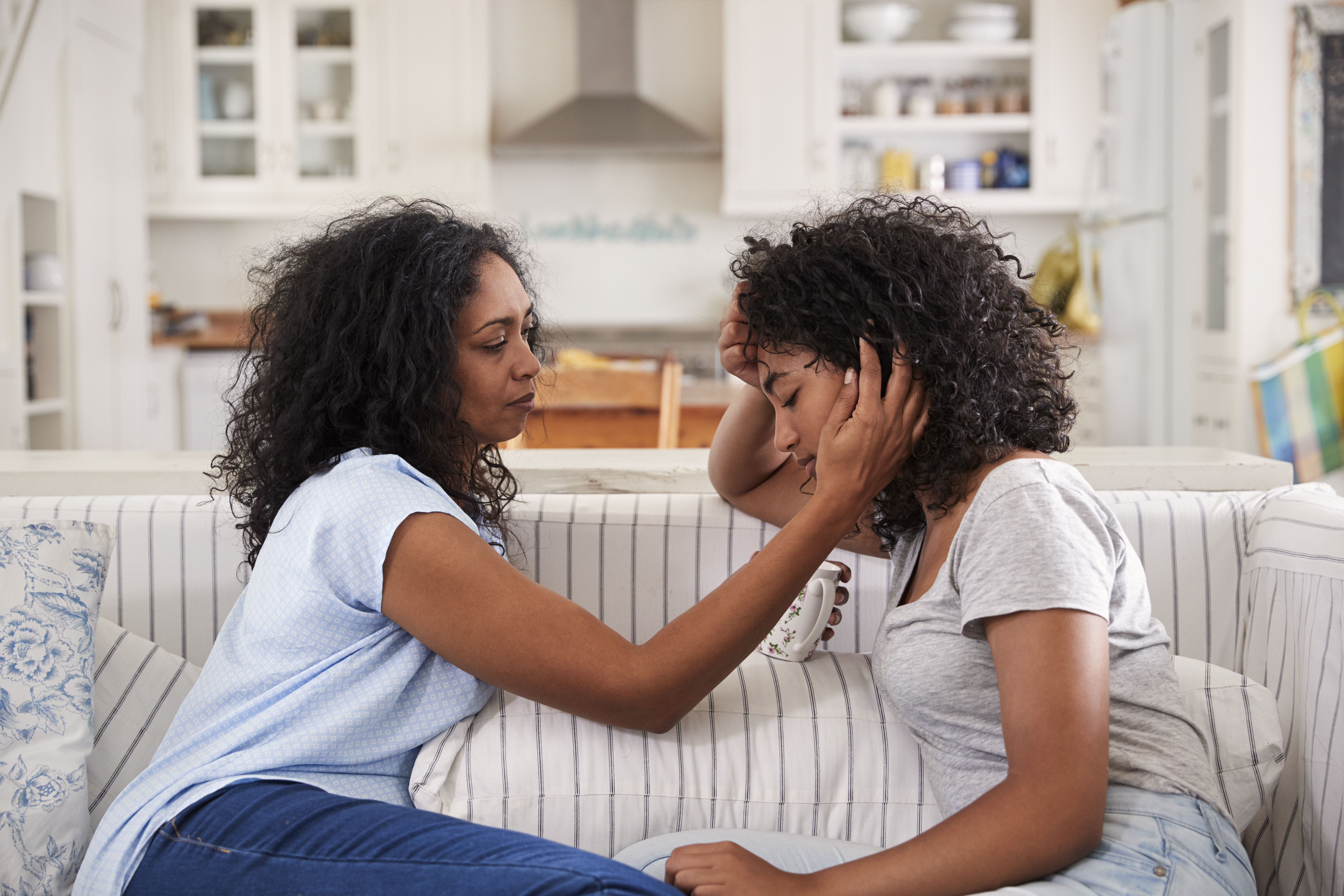Depression and anxiety are medical problems that develop due to a variety of causes, including long-term stress. Unfortunately, there is still a great deal that is unknown about them. We do know that they are not a sign of weakness or some personal flaw, and treatments are available.
Depression
It’s normal to feel sad about your teenager’s cancer, to cry or feel overwhelmed sometimes. But for some people, the sadness and pressure can take over their lives. It clouds over everything and impairs their ability to function and care for their child. This is called depression.
Here are some signs that you may have depression. Knowing these symptoms early on can help you take steps to prevent or recover from it.
- You feel and act more irritable
- You feel sad or empty most days
- You experience little or no pleasure in your days
- You have trouble concentrating or making decisions
- You are either restless or feel slowed down most of the time
- You eat more or less than you used to
- You have trouble sleeping or you sleep too much
- You feel aches and pains that won’t go away
- You cry often
- You have lost interest in sex
- You feel tired or lethargic almost every day
It is normal for a parent of a child with cancer to experience some of these things for a little while. However, if you experience any of these signs most of the time, for a period of more than two weeks—or if these signs are interfering with your everyday functioning—see a doctor, or talk to a member of your child’s health-care team.
If you have thoughts of harming yourself or taking your own life, seek help from a medical professional immediately. Such feelings are surprisingly common. They can be a source of embarrassment or shame. Talking to someone about these thoughts and feelings can be very useful. Seeking professional help can also allow you to better support and care for the important people in your life, including your teen with cancer.
Depression can be treated very successfully with skilled help. A doctor or a mental health professional (psychologist, social worker or psychiatrist) has many different ways of treating depression that can help you feel more hopeful and able to cope. You might want to consider taking advantage of the unique skills and treatments that all of these health-care providers offer.
Having depression doesn’t mean that you are crazy or weak. It doesn’t mean that you are unable to care for your child. Depression is a medical problem and can be caused by the physical effects of the stress of caring for a child with cancer. It can also be caused by a history of depression in the family, so be aware of your own health background.
Anxiety
When you have a child with cancer, it is natural to feel stressed and worried. You may be worried about the future, about your child suffering, or about how you will cope with all the responsibility.
Anxiety is a more intense worry that interferes with you doing things that are important. The following are signs that you may have anxiety.
- Feel tired but have trouble sleeping
- Feel constantly tense
- Have racing thoughts
- Have difficulty concentrating or with memory
- Unable to control how much time you spend worrying
- Often feel unexplainable aches and pains
- Feel irritable most of the time
- Have more angry outbursts than usual
- Shake or tremble
- Have an episode where your heart races, you have a dry mouth or excess sweating or you are short of breath
- Expect the worst to happen even though you don’t have any proof
Experiencing some of these things for a short time is normal as you adjust to your child having cancer. You may want to talk to someone about your worries or schedule some more time for yourself. Activities like swimming, yoga, meditation, walking outdoors in nature or even taking slow deep breaths can help relieve anxiety.
If you have frightening thoughts, or if anxiety is interfering with your daily life, it’s important to talk to your own doctor or a member of your child’s health-care team. They can connect you with a professional who has experience treating people with anxiety.
There are many effective strategies to help you manage anxiety. People are often surprised at how quickly they can start to feel better after seeking some support.

